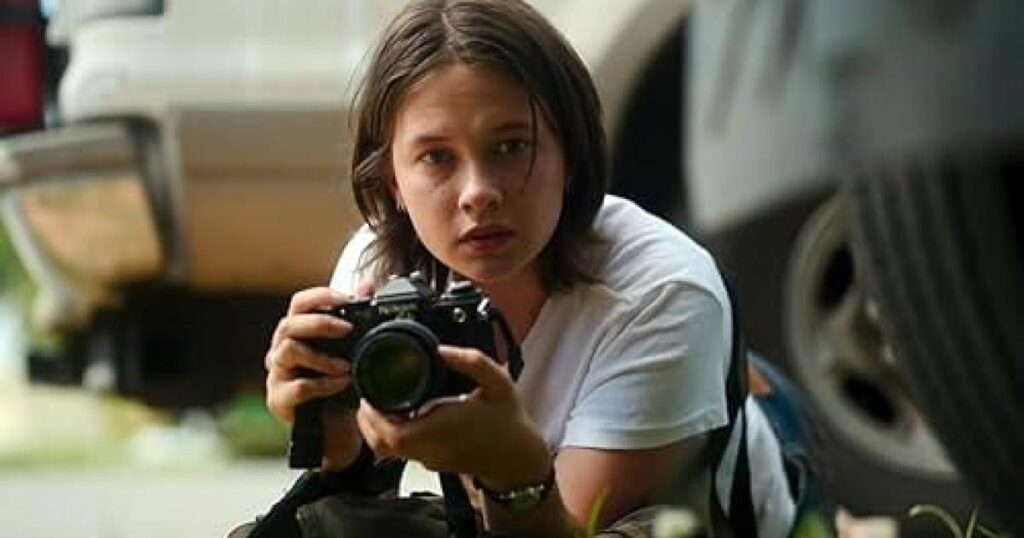‘What kind of American are you?’
3 min read
“Every time I survived a war zone I thought I was sending a warning home: don’t do this,” Kirsten Dunst’s character, the press photographer Lee Smith, confides. “But here we are”.
Exhausted, jaded, and maximally concerned about the future prospects of humanity. That’s how I felt after watching Alex Garland’s epic Civil War from the comfortable seats at the BFI IMAX in Waterloo. But if you stare at the screen long enough, you can see hope.
Garland, in his latest directorial outing, performs an important thought experiment. What if the conflicts that have raged at the periphery of the American empire for the last century were to finally engulf its centre? Or, tangentially, what if the Trumpian dream of dictatorship, brinkmanship and warmongering were to become the American reality?
Massacre
The film is at its simplest the story of a photograph. Civil War is superficially a classical movie experience, even a cliche. We follow a motley crew of cynical journalists along an episodic series of ever increasing jeopardy until we reach a bombastic finale. This is, once again, the Odyssey of our times, the hero’s journey if you like.
Indeed, we are even presented with the four ages of newsgathering. The cub photojournalist Jessie Cullen, played by Cailee Spaeny (pictured, above), who hitches a ride from New York to Washington DC. The adrenaline junkie Joel (Wagner Moura), self medicating with Vodka and cigarettes, Lee herself, trapped by success in a career defined by the worst of human trauma, and finally the wise and fatally paternal Sammy New York Times writer, brilliantly rendered by Stephen McKinley Henderson.
At this basic level, Civil War is brilliantly done. We warm to the characters as we watch their responses and relationships deepen. The slow build of the action is like listening to the strings of a violin being tightened to breaking point.
The action takes you to the edge of your seat before making you jump. The vintage soundtrack is a constant reminder that the American empire has learned nothing from Vietnam, then Afghanistan, as we metamorphosis from being the postwar into the prewar generation.
But the film gains its value from the accuracy and the urgency of its political imaginary. We are told that there was an Antifa massacre, that there is now an alliance between the ‘secessionist’ California and Texas which has taken up arms against the US military, and POTUS (Nick Offerman) in his third term in the Oval Office. Florida, it is suggested, is now part of Mexico and therefore central American.
Correspondents
Strikingly, we are given an entirely believable cityscape where torture, mass graves, ethnic cleansing and the total destruction of cities is no longer something the American military imposes on the Oriential Other but instead is visited upon American citizens on American soil.
The possibility is vividly and terrifyingly rendered all too possible when our hapless media crew is confronted by a pink-spectacled war criminal. We are American, is their defence. “Okay. ‘What kind of American are you?’”
Professionals often complain that when scriptwriters attempt to tell their stories the facts are wrong and the general impression is wildly off. I may have only spent a few weeks in Gaza and the West Bank, and just days in pre-war Baghdad.
But I have shared a considerable amount of time with war correspondents and photographers. I travelled into Iraq with the late Tom Hurndall and James Miller, both later killed by the Israeli military while reporting on the occupation.
To some extent, I see myself evolving from each of Garland’s characters as I get older. From this experience, Civil War is a brilliantly authentic and realistic presentation of how such a conflict will unfold, and how journalists will respond to it. This is exactly what war correspondents are like. This is what war is like.





